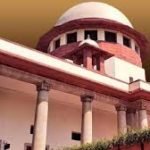The appellant invoked the High Court’s jurisdiction to quash criminal proceedings initiated by the Revenue under Section 276C(1) of the Income Tax Act, 1961 (IT Act), for the assessment year 2017-2018, alleging a willful attempt to evade tax. The High Court dismissed the appellant’s quashing petition and a subsequent writ appeal.
A search was conducted on 24.04.2016 under Section 132 of the IT Act, leading to the seizure of unaccounted cash. A show-cause notice followed on 31.10.2017.
The Revenue filed a complaint against the appellant on 11.08.2018.
The appellant filed an application with the Settlement Commission under Section 245C of the IT Act on 07.12.2018, disclosing additional income and seeking immunity from penalty and prosecution.The Settlement Commission, on 26.11.2019, allowed the application, granting immunity from levy of penalty and prosecution.
The total undisclosed income for the assessment year 2017-2018 was Rs. 61,50,000/-, resulting in a tax liability of less than Rs. 25 lakhs.
Law Involved
Section 276C(1) of the IT Act, 1961: Deals with willful attempts to evade tax, penalties, or interest chargeable.
Section 245C of the IT Act: Pertains to applications for settlement before the Settlement Commission.
Section 245D(4) & 245I of the IT Act: Relate to the Settlement Commission’s order and its conclusiveness.
Section 245H(1) of the IT Act: Grants the Settlement Commission power to provide immunity from prosecution and penalty.
Proviso to Section 245H(1): States that immunity cannot be granted if prosecution was initiated prior to the settlement application.
Section 279(1) of the IT Act: Requires sanction for prosecution by specified authorities (e.g., Principal Chief Commissioner or Commissioner).
Government of India Guidelines/Circulars:
2008 Circular (dated 24.04.2008): Streamlines procedure for prosecution, including thresholds for penalty exceeding Rs. 50,000/-.
2019 Circular (dated 09.09.2019): For tax liability below Rs. 25 lakhs, prosecution requires previous administrative approval of the Collegium of CCIT/DGIT rank officers.
Recommendations of the Wanchhoo Committee (1971): Advocated for a “Settlement Machinery” to compromise with errant taxpayers and reduce litigation.
Reasoning
The Supreme Court’s reasoning highlighted several critical points:
Conclusiveness of Settlement Commission’s Order: The Court emphasized that an order passed by the Settlement Commission under Section 245D(4) is conclusive regarding the matters stated therein. The Settlement Commission had granted immunity to the appellant from both penalty and prosecution.
Settlement Commission’s Finding on “Wilful Evasion”: Crucially, the Settlement Commission did not find any wilful evasion of tax by the appellant. This finding undermined the very basis of the prosecution under Section 276C(1), which requires a “wilful attempt to evade tax”.
Misinterpretation of Proviso to Section 245H(1): The Court noted that the High Court and the Revenue’s view, that immunity could not be granted because the complaint was filed before the settlement application, was incorrect. The power to grant immunity under Section 245H is an integral part of the settlement scheme.
Violation of Binding Circulars:
The tax liability in this case was less than Rs. 25 lakhs. According to the ‘2019 circular’, prosecution for tax liability below this threshold requires previous administrative approval from the Collegium of CCIT/DGIT rank officers. This approval was not obtained.
The Court reiterated that circulars issued by the Central Board of Direct Taxes (CBDT) are binding on the authorities administering the provisions of the IT Act.
Abuse of Process of Law: The Court strongly stated that the continued prosecution by the Revenue, despite the Settlement Commission’s findings and the non-compliance with binding circulars, amounted to an abuse of the process of law. The High Court’s approach was deemed “entirely misdirected”.
Competence of DDIT to Initiate Prosecution: The appellant had also challenged the competence of the Deputy Director of Income Tax (Investigation) to initiate prosecution under Section 279(1) of the IT Act.
Holding
The Supreme Court granted leave. The appeal was allowed.The order of the High Court was set aside.The criminal prosecution proceedings initiated by the Revenue against the appellant for the offence under Section 276C(1) of the IT Act for assessment year 2017-2018 were quashed.
Vijay Krishnaswami @ Krishnaswami Vijayakumar vs Deputy Director of Income Tax (Investigation)
Supreme Court: 2025 INSC 1048 (DoJ 28-08-2025)






